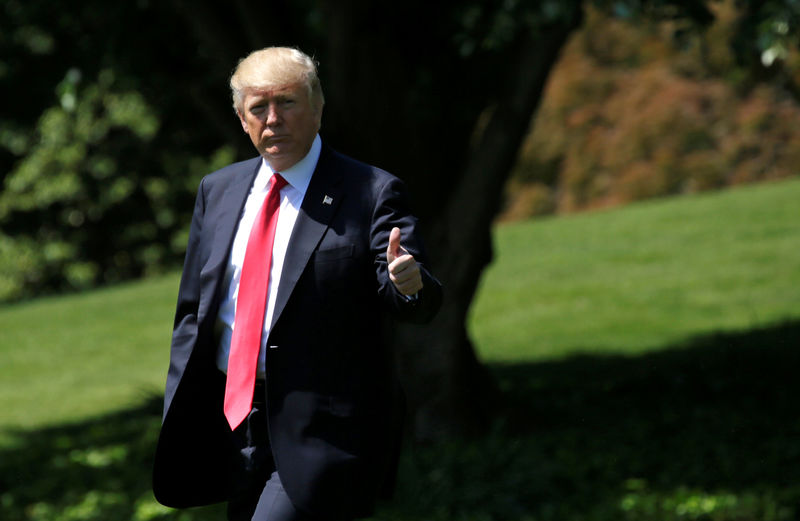By Lawrence Hurley and Valerie Volcovici
WASHINGTON (Reuters) - A U.S. appeals court on Friday granted a Trump administration request to put on hold a legal challenge by industry and a group of states to former President Barack Obama's regulations aimed at curbing greenhouse emissions mainly from coal-fired power plants, rules that the Republican president is moving to undo.
A 10-judge panel of the U.S. Court of Appeals for the District of Columbia Circuit granted the request to put the litigation involving the regulations, known as the Clean Power Plan, in abeyance for at least 60 days while the administration plans its next steps.
The court also asked the administration and other parties to file briefs on whether the case should be sent back to the Environmental Protection Agency.
The Supreme Court last year put the regulations on hold pending the outcome of the case.
In a separate order issued on Friday, the same court put on hold a case challenging another set of Obama climate regulations aimed at new power plants.
Twenty-seven states, led by coal-producer West Virginia and industry groups, challenged the Obama regulation. Other states and environmental groups backed the former administration.
New York Attorney General Eric Schneiderman, who sided with the previous administration's EPA to defend the Clean Power Plan, brushed off the court's move, saying it simply puts the litigation on hold for 60 days.
“Today’s temporary pause in the litigation does not relieve EPA of its legal obligation to limit carbon pollution from its largest source: fossil-fueled power plants," Schneiderman said. "I will continue to fight in court to ensure EPA fulfills its legal responsibility."
West Virginia Attorney General Patrick Morrisey, who led the challenge against the rule, said Friday's decision signaled that the court has acknowledged the change in the political landscape "and that a decision on the merits is not appropriate at this time."
An executive order by Trump was part of his effort to cut federal environmental regulations to revive the energy drilling and coal mining industries, a promise he made during the 2016 presidential campaign.
Energy analysts and executives have questioned whether Trump's broad moves against environmental regulations will provide a big benefit for their industries, and environmentalists have called his actions reckless.
The Clean Power Plan was designed to lower carbon emissions from existing U.S. power plants by 2030 to 32 percent below 2005 levels. It was seen as the main tool for the United States to meet the emissions-reduction target it promised to reach at U.N. climate talks in Paris in December 2015. Power plants are the largest source of U.S. carbon emissions.
David Cherney, an energy analyst for PA Consulting, said the D.C. Circuit ruling gives the Trump administration more time to come up with a replacement to the Clean Power Plan, which will inevitably be followed by more legal challenges.

"Any change to the Clean Power Plan by the Trump administration will be challenged in courts and would need to be sufficiently justified to survive legal challenge from the environmental lobby," Cherney said.